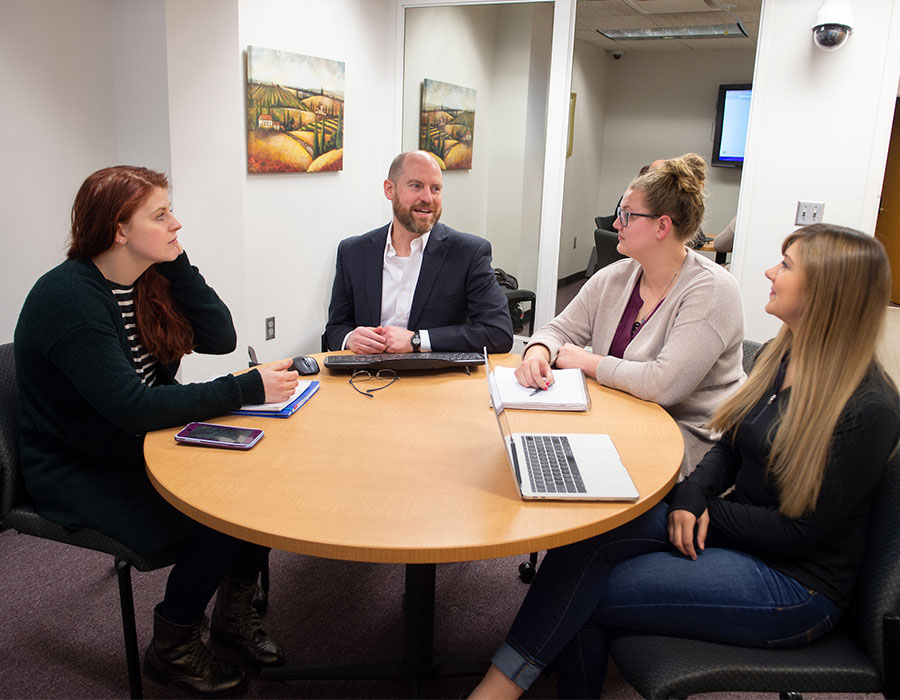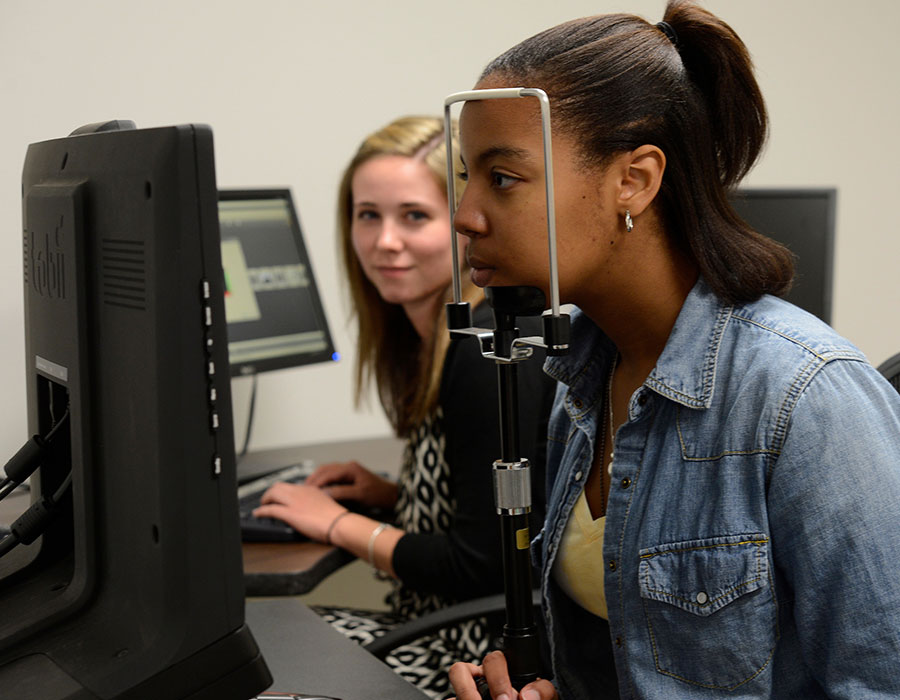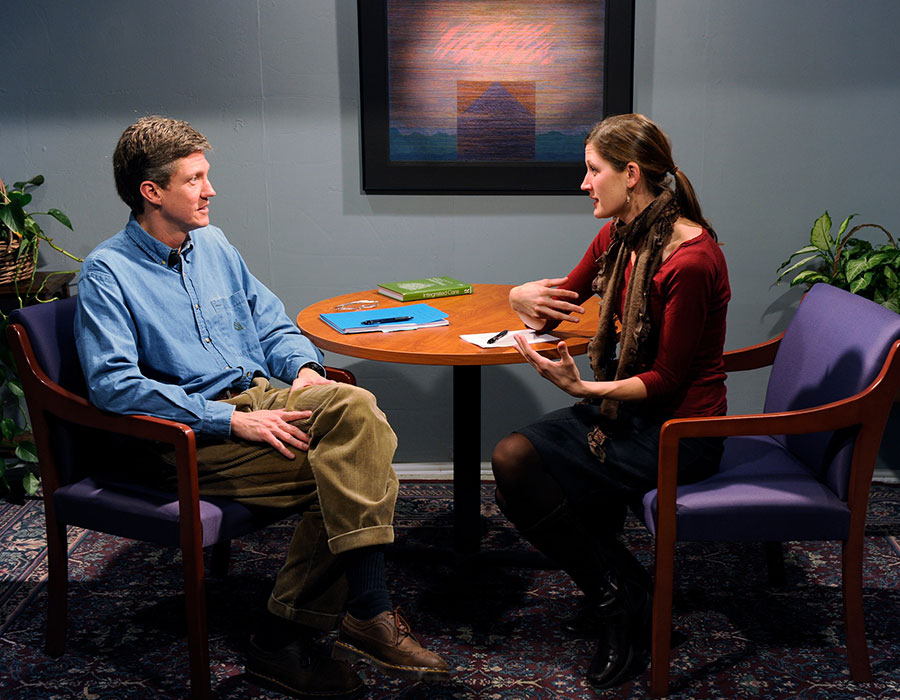Doctor of Psychology
Program Overview
Cullowhee, Main Campus
Prerequisites: GRE
Full-Time, 36 Months to Complete
Application Deadline: Feb. 1
Meets NC License Requirements
APA Accredited
Virtual Open House
Thursday, May 2, 2024: 5-6:30 p.m.
Join us at one of our upcoming virtual Graduate School Open House events on Zoom! You'll have the opportunity to learn more about Western Carolina University, understand the Graduate School application process, and meet key program representatives.
Western Carolina University's Doctor of Psychology (PsyD) in Health Service Psychology (Combined Clinical- School) is a three-year, post-Masters professional preparation program.

Upon completion of the program, students will be able to provide culturally competent, evidence-based clinical services while adhering to the highest ethical standards. Professional psychologists will be trained to work in various settings serving underserved populations, particularly individuals living in rural communities in North Carolina.
The PsyD program at WCU ascribes to the practitioner-scholar model of professional training, which places greater emphasis on clinical preparation as opposed to research training. Students in the program will garner experience through formal coursework, supervised clinical experiences, and research requirements with the goal to prepare graduates for licensure.
This curriculum is designed to meet requirements for accreditation by the American Psychological Association.
Admission to the Program
At the time of enrollment, applicants must have completed the following:
- a Masters or Specialist degree in clinical or school psychology or
- a Masters degree in a related area that includes at least 18 hours of coursework in psychology.
At the time of application, candidates must select a concentration area: Clinical or School Psychology.
Candidates who are graduates of the M.A. Clinical Psychology program or S.S.P. School Psychology program at Western Carolina University will have satisfied all course prerequisites prior to admission to the PsyD program.
Candidates graduating from other Masters programs will need to submit transcripts, syllabi, and evidence of prior research conducted (e.g., thesis; published paper) for faculty review to determine if prior coursework satisfies program prerequisites; however, these materials are not needed as part of the initial application.
- Transcripts from all postsecondary colleges and universities attended documenting
the following criteria:
- Cumulative undergraduate GPA of 3.30 for the last 60 hours (preferred criteria)
- Cumulative graduate GPA of 3.5 (on a 4.0 scale) or higher (preferred criteria)
- Official GRE score report from test administration within the past five years documenting GRE scores at the 50th percentile or higher on both Verbal Reasoning and Quantitative Reasoning sections (preferred criteria)
- Three letters of recommendation solicited from professionals (ideally professional
supervisors and psychology faculty) who can provide information about candidate’s:
- Capacity for success in a doctoral psychology program
- Interpersonal characteristics
- Academic preparation
- Clinical skills
- A Curriculum Vita documenting the following criteria
- Prior research experience (preferred criteria)
- Educational history and Other Experiences
- Personal statement written in three (3) double-spaced pages or less describing the
candidate’s:
- Background and experiences in psychology,
- Interest in the PsyD program and specific concentration identified
- Academic interests that align with departmental faculty
- Career goals
- Commitment to providing psychological services to underserved and rural populations
Admission into the PsyD program is selective and satisfying the preferred admission criteria described below does not guarantee admission to the program.
The PsyD admission committee (PAC) will review all completed applications and invite top candidates for in-person interviews. Interviewee selection will be based on review of graduate coursework and GPA, GRE scores, quality of recommendations, and personal statement.
The application review process involves holistic evaluation, including fit with mission of the program as well as academic preparation and promise
Curriculum
Fall 2019 PsyD Cohort
Consistent with APA Accreditation standards, the PsyD program curriculum emphasizes broad and general training in discipline-specific knowledge that informs health service psychology, such as the biological basis of behavior, social influences on behavior, history and philosophical systems of psychology, research and data analysis, cognitive/affective aspects of behavior, and psychological measurement.
Doctor of Psychology (PsyD) Program Curriculum - Effective Fall 2022
Fall 1st Year
PSY 841 Biological and Affective Bases of Behavior (3 hours)
PSY 851 Advanced Research Methods and Statistics III (3 hours)
PSY 888 Professional Supervision (3 hours)
PSY 886 Internal Doctoral Practicum (McKee Clinic) (3 hours)
PSY 668 Teaching of Psychology (For PsyD Teaching Assistants) (3 hours)
12 (15) hours total
Spring 1st Year
PSY 878 Child & Family Systems & Intervention (3 hours)
PSY 842 Multicultural Psychology (3 hours)
PSY 823 Professional Consultation in Health Service Psychology (3 hours)
PSY 886 Internal Doctoral Practicum (McKee Clinic) (3 hours)
12 hours total
Summer 1st Year
No courses required
3 hours total
Fall 2nd Year
PSY 844 Advanced Cognitive Psychology (3 hours)
PSY 873 Ethics in Health Service Psychology (3 hours)
PSY 887 External Doctoral Practicum (School or Clinic Based) (3 hours)
PSY 899 Dissertation (3 hours)
12 hours total
Spring 2nd Year
PSY 810 Advanced Social Psychology (3 hours)
PSY 887 External Doctoral Practicum (School or Clinic Based) (3 hours)
PSY 899 Dissertation (3 hours)
PSY 855 Advanced History and Systems (3 hours)
12 hours total
Summer 2nd Year
PSY 883 Doctoral Internship (School Concentration requires 600 hours in School (1
hour)
1 hour total
Fall 3rd Year
PSY 883 Doctoral Internship (2 hours)
2 hours total
Spring 3rd Year
PSY 883 Doctoral Internship (2 hours)
2 hours total
Summer 3rd Year
PSY 883 Doctoral Internship (1 hour)
1 hour total
The PsyD program emphasizes mastery of profession-wide competencies that are grounded in evidence-based practices in core professional activities, such as assessment, therapy, consultation, and supervision. Our curriculum grounds all coursework and supervised clinical practice in both the empiricism of psychology and ethical competence.

Candidates admitted to the PsyD program will be involved actively in faculty research programs.
PsyD candidates will demonstrate mastery of psychological research through the completion of a dissertation. The dissertation requirement reflects the program’s commitment grounding professional psychological practice in the empirical science of psychology.

The PsyD program features an in-house training clinic, the McKee Psychological Services Center (McKee Clinic).
The McKee Clinic features multiple assessment and therapy rooms with two-way observation mirrors, state-of-the-art video capture technology, videoconference technology, a dedicated reception area, extensive library of testing materials, and dedicated student office space.
Candidates will complete advanced practicum training under supervision from licensed psychologists in various settings.
The PsyD program has established contacts with the Western Carolina University Counseling and Psychological Services (CAPS) center, the TEACCH Asheville Center, the Charles George VA Hospital in Asheville, Meridian Behavioral Health, and local school districts, among other practicum training sites.
FAQs
It depends on how well the graduate program aligns with either the MA Clinical Psychology curriculum or the SSP School Psychology curriculum. Critical components of WCU graduate programs include supervised practicum placements, research requirements, and core curriculum. If applicants do not satisfy curricular pre-requisites, it is possible for an applicant to be admitted conditionally to the PsyD program while pre-requisites are completed. Applicants from other graduate programs may contact the PsyD Program Director with specific inquires.
Students with Bachelor’s degrees must complete either the MA Clinical Psychology or SSP School Psychology curriculum prior to applying to the PsyD program.
The PsyD Program is Accredited, on Contigency effective March 1, 2022. Please see APA’s Commission on Accreditation (CoA) website for more information about APA Accreditation.
Tuition for students differs according to North Carolina resident status. Please find current graduate tuition and fees information on their site. Additional estimated fees or costs to students (e.g., books, liability insurance) are $500.00/year.
PsyD students are guaranteed two years of financial support ($20,000/year) through work completed as undergraduate instructors. The financial support does not include a tuition waiver. PsyD students are eligible to receive the Christine Biles Ledford scholarship ($2,500/year) per year through a competitive application process.
Faculty
The PsyD is supported by core faculty members representing clinical and school psychology specializations with wide-ranging research interests and clinical expertise. Four faculty members are licensed psychologists.
The PsyD program is further supported by departmental faculty members with expertise in cognitive, experimental, educational, developmental, and social psychology.
Explore our faculty and their research below:
Kia Asberg, Ph.D., Department Head; Clinical Psychology
Candace Boan-Lenzo, Ph.D., School Psychology
Alleyne Broomell, Ph.D., Developmental Cognitive Neuroscience
Hannah Buala, Ph.D., Experimental Social Psychology
Jon Campbell, Ph.D., Director - Doctor of Psychology
Sam Castelblanco, Ph.D., Experimental
Brian Collin, Ph.D., Clinical and Educational Psychology
David de Jong, Ph.D., Social Psychology
Tom Ford, Ph.D., Social Psychology
Meghan Gangel, Ph.D. Developmental Psychology
L. Alvin Malesky, Jr., Ph.D., Forensic Psychology
David McCord, Ph.D., Clinical Psychology
Erin Myers, Ph.D., Social-Personality Psychology
Courtney Rogers, Ph.D., Clinical Psychology
Nathan Roth, Ph.D., School Psychology
Ellen Sigler, Ed.D, Educational
David Solomon, Ph.D., Director -Clinical MA program
Lori Unruh, Ph.D., Director - School Psychology
Jamie Vaske, Criminal Justice
Annie Wilson, Ph.D., Industrial Organization, Undergraduate Advising & Recruitment Coordinator


